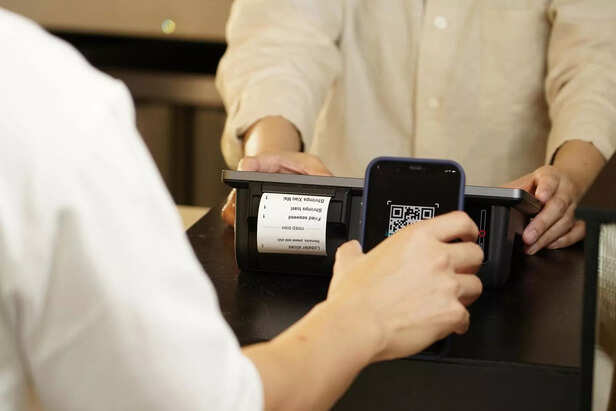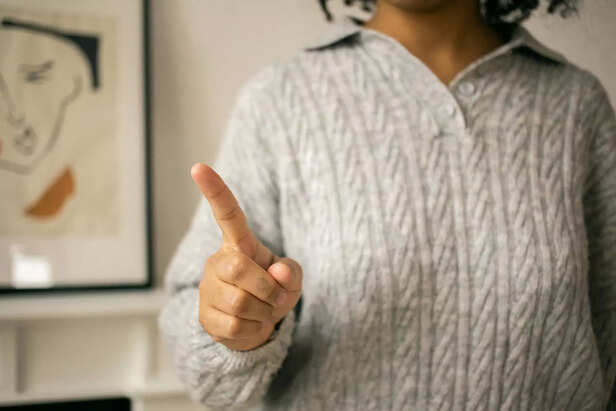How to Deal with Friends Who Only Take: Chanakya’s Advice (Stop Being Used)
Riya Kumari | Apr 22, 2025, 23:58 IST
Let’s get this straight: we’ve all been there. The friend who’s got the “Oh, I need your help with X” down to an art form. At first, it’s all sweet—like, “Hey, no problem, I’m here for you!” But then, you start noticing a pattern. They call when they need a favor, but you never hear from them when it’s your turn. Suddenly, you’re their personal ATM, therapist, and unpaid assistant. Ever had that moment where you realize you’re the unpaid intern in a friendship?
There’s a certain kind of friendship that wears you down over time. It’s the type where you show up for everyone, give your time and energy freely, and put in the effort, but somehow, when it’s your turn, you’re left with nothing. No call. No text. Just a hollow space where connection should be. It’s easy to ignore at first. “They’re busy,” you think. “They’ll come around.” But after a while, the truth becomes undeniable: you’re being used. You’re giving more than you’re receiving, and somewhere along the way, the balance shifted. What started as a mutual exchange is now an uneven contract that only benefits one party. And it's not you.
The Quiet Betrayal of One-Sided Friendship

The idea that friendship should be unconditional sounds lovely. But real relationships—friendships included—are built on boundaries, respect, and give-and-take. When one person is always the giver and the other the taker, something shifts. You stop feeling like a friend and start feeling like a resource. This might sound harsh, but it’s important to recognize when the lines between generosity and exploitation blur. What’s worse than being used is the slow realization that you’ve allowed it. You’ve let yourself be the person others lean on, yet when you need support, your calls go unanswered.
It’s not just that they don’t reciprocate—it’s that they take it all and leave you empty. They take your time, your energy, and your kindness, and all you get in return is silence or a hollow “thanks” when it’s convenient. This isn’t just frustrating; it’s a betrayal. The type that erodes your sense of self-worth and leaves you questioning where your value lies in the eyes of others. And here’s the most sobering truth: this isn’t an accident. It’s a pattern, a conscious or unconscious choice on their part to keep you in a role that doesn’t require them to give anything back.
Recognizing and Breaking Free from the Cycle

Here’s where Chanakya’s teachings come in. His ideas on relationships weren’t just theoretical; they were practical strategies for living with self-respect and wisdom. He wasn’t about “cutting people off” or starting drama; he was about clarity and strategy. One of his core principles is recognizing when someone is taking advantage of you and acting decisively to protect your well-being. Chanakya knew the value of self-preservation. He believed that one must understand their worth and never allow themselves to be taken for granted.
In friendships, this translates to knowing when to draw the line. You don’t have to scream your boundaries into existence or demand validation from others. Sometimes, the most powerful form of self-respect is simply to stop giving. Stop being there at every turn. Stop being the one they know will always show up when they need you. The power in Chanakya’s wisdom is subtle but profound: it’s about choice. It’s about choosing not to be a doormat. It’s about recognizing that your time, energy, and emotions are yours to give, not to be exploited.
Boundaries as a Form of Self-Respect

It’s easy to think that being a good friend means saying yes to everything, being available all the time, and sacrificing your own needs. But real friendship doesn’t demand that kind of self-neglect. If a relationship consistently leaves you feeling drained, it’s not only okay to step back—it’s necessary. Healthy boundaries are a form of self-respect, and any friend who truly values you will respect those boundaries in return. But here’s the catch: setting boundaries isn’t as easy as it sounds. It requires a shift in mindset. It’s not about punishing the other person; it’s about protecting your own peace.
It’s about creating space where you’re not constantly giving away parts of yourself, leaving you with nothing but resentment. This doesn’t mean you have to cut off everyone who’s ever asked for help. It’s about being mindful of the relationships that drain you without offering anything in return. It’s about recognizing that some people are takers, and no matter how much you give, they will always take. The solution isn’t to give more; it’s to stop giving when it becomes clear that your effort isn’t appreciated.
The Uncomfortable Truth: You Can’t Save Everyone

One of the hardest truths to accept is that not everyone you care about is capable of offering the same kind of care in return. Some people are just not emotionally equipped to give. They might be going through their own struggles, or they might just be so self-absorbed that they don’t notice—or care—that you’re giving more than you should. Chanakya would say: don’t waste your energy trying to change them. Instead, invest in yourself. Recognize that you cannot carry people who refuse to walk with you.
It’s a painful realization, but it’s also a freeing one. The moment you stop trying to fix people who aren’t interested in fixing themselves, you free yourself from the burden of expectations that were never yours to begin with. You are not responsible for their happiness, their emotional well-being, or their life decisions. Your responsibility is to yourself. And if someone can’t meet you halfway, you don’t need to keep trying to pour from an empty cup.
The Quiet Power of Saying No

One of the most liberating things you can do in any relationship is simply say no. Not out of anger or frustration, but out of wisdom. Saying no is a statement of self-worth. It’s an acknowledgment that your time, energy, and emotional resources are valuable and that you don’t have to give them to anyone who doesn’t treat them with respect.
So, the next time a friend calls with another “emergency,” take a moment to evaluate. Is this truly something you want to help with, or is it just another attempt to have your energy siphoned off without reciprocation? It’s okay to say no. In fact, it’s necessary for your own well-being.
Wisdom Over Comfort
In the end, Chanakya’s advice isn’t about being cold or distant; it’s about wisdom. It’s about understanding the true nature of relationships and making choices that protect your emotional integrity. It’s about knowing when to give and when to step back. True friendships aren’t about who needs you the most—they’re about mutual respect, understanding, and reciprocity. So, if you find yourself in a one-sided relationship, remember this: you’re worth more than being a convenience.
You deserve people who see your value, not just when they need something, but at all times. And sometimes, the most powerful thing you can do is step back, reassess, and preserve your energy for those who truly appreciate it. Because in the end, the best kind of friendship isn’t one where you’re constantly being used—it’s one where both people give freely, without keeping score. And that, my friend, is a rare and beautiful thing.
The Quiet Betrayal of One-Sided Friendship

Bill
( Image credit : Pexels )
The idea that friendship should be unconditional sounds lovely. But real relationships—friendships included—are built on boundaries, respect, and give-and-take. When one person is always the giver and the other the taker, something shifts. You stop feeling like a friend and start feeling like a resource. This might sound harsh, but it’s important to recognize when the lines between generosity and exploitation blur. What’s worse than being used is the slow realization that you’ve allowed it. You’ve let yourself be the person others lean on, yet when you need support, your calls go unanswered.
It’s not just that they don’t reciprocate—it’s that they take it all and leave you empty. They take your time, your energy, and your kindness, and all you get in return is silence or a hollow “thanks” when it’s convenient. This isn’t just frustrating; it’s a betrayal. The type that erodes your sense of self-worth and leaves you questioning where your value lies in the eyes of others. And here’s the most sobering truth: this isn’t an accident. It’s a pattern, a conscious or unconscious choice on their part to keep you in a role that doesn’t require them to give anything back.
Recognizing and Breaking Free from the Cycle

Sad friend
( Image credit : Pexels )
Here’s where Chanakya’s teachings come in. His ideas on relationships weren’t just theoretical; they were practical strategies for living with self-respect and wisdom. He wasn’t about “cutting people off” or starting drama; he was about clarity and strategy. One of his core principles is recognizing when someone is taking advantage of you and acting decisively to protect your well-being. Chanakya knew the value of self-preservation. He believed that one must understand their worth and never allow themselves to be taken for granted.
In friendships, this translates to knowing when to draw the line. You don’t have to scream your boundaries into existence or demand validation from others. Sometimes, the most powerful form of self-respect is simply to stop giving. Stop being there at every turn. Stop being the one they know will always show up when they need you. The power in Chanakya’s wisdom is subtle but profound: it’s about choice. It’s about choosing not to be a doormat. It’s about recognizing that your time, energy, and emotions are yours to give, not to be exploited.
Boundaries as a Form of Self-Respect

No
( Image credit : Pexels )
It’s easy to think that being a good friend means saying yes to everything, being available all the time, and sacrificing your own needs. But real friendship doesn’t demand that kind of self-neglect. If a relationship consistently leaves you feeling drained, it’s not only okay to step back—it’s necessary. Healthy boundaries are a form of self-respect, and any friend who truly values you will respect those boundaries in return. But here’s the catch: setting boundaries isn’t as easy as it sounds. It requires a shift in mindset. It’s not about punishing the other person; it’s about protecting your own peace.
It’s about creating space where you’re not constantly giving away parts of yourself, leaving you with nothing but resentment. This doesn’t mean you have to cut off everyone who’s ever asked for help. It’s about being mindful of the relationships that drain you without offering anything in return. It’s about recognizing that some people are takers, and no matter how much you give, they will always take. The solution isn’t to give more; it’s to stop giving when it becomes clear that your effort isn’t appreciated.
The Uncomfortable Truth: You Can’t Save Everyone

Help
( Image credit : Pexels )
One of the hardest truths to accept is that not everyone you care about is capable of offering the same kind of care in return. Some people are just not emotionally equipped to give. They might be going through their own struggles, or they might just be so self-absorbed that they don’t notice—or care—that you’re giving more than you should. Chanakya would say: don’t waste your energy trying to change them. Instead, invest in yourself. Recognize that you cannot carry people who refuse to walk with you.
It’s a painful realization, but it’s also a freeing one. The moment you stop trying to fix people who aren’t interested in fixing themselves, you free yourself from the burden of expectations that were never yours to begin with. You are not responsible for their happiness, their emotional well-being, or their life decisions. Your responsibility is to yourself. And if someone can’t meet you halfway, you don’t need to keep trying to pour from an empty cup.
The Quiet Power of Saying No

Walk away
( Image credit : Pexels )
One of the most liberating things you can do in any relationship is simply say no. Not out of anger or frustration, but out of wisdom. Saying no is a statement of self-worth. It’s an acknowledgment that your time, energy, and emotional resources are valuable and that you don’t have to give them to anyone who doesn’t treat them with respect.
So, the next time a friend calls with another “emergency,” take a moment to evaluate. Is this truly something you want to help with, or is it just another attempt to have your energy siphoned off without reciprocation? It’s okay to say no. In fact, it’s necessary for your own well-being.
Wisdom Over Comfort
You deserve people who see your value, not just when they need something, but at all times. And sometimes, the most powerful thing you can do is step back, reassess, and preserve your energy for those who truly appreciate it. Because in the end, the best kind of friendship isn’t one where you’re constantly being used—it’s one where both people give freely, without keeping score. And that, my friend, is a rare and beautiful thing.
